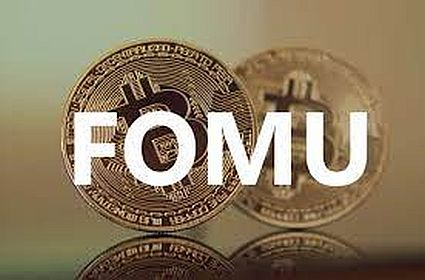Thanks to the outstanding work by Matt Dixon and Ted McKenna in “The JOLT Effect,” we are now beginning to understand the impact of “Fear of Messing Up,” or FOMU on buying deccisions. (I need to go on record with my preferred version being FOFU.).
But what about Seller FOMU/FOFU?
Particularly as we look at these very difficult economic times. We read of reductions and layoffs. We see heightened demands for performance and hitting the numbers. The survivors of layoffs, have more on their plates–the numbers haven’t changed but the resources to do achieve them is fewer.
Many organizations with toxic cultures have their people living in fear. If they don’t achieve their goals, if they make a mistake, they will be fired.
Sellers and Leaders, while they may not be expressing it, work every day in FOFU!
This fear can be paralyzing–and just when being paralyzed is the wrong organizational response.
It’s human nature to “keep our heads down.” Rather than drawing attention, we tend to hide out.
In times where we need to adjust our strategies and execution to fit with the current economic environment, we find security in what we’ve always done before. We keep doing what’s always worked–when that is probably the wrong thing to be doing.
Many of us, both sellers and leaders, have never faced this type of economy before. Even if we look at the prior two downturns, they were different–and the world has changed.
We see the panic that is setting in with so many organizations. Demands for much higher activity levels, more work, producing more results.
We see CEOs in public rants, like the MillerKnoll CEO publicly complaining about concerns about bonuses, “just do your jobs!”
Our feeds are filled with articles about mental health and work/life balance articles, talking about the challenges all of us face.
And on top of all of this, our infatuation with AI tools, have sellers proclaiming the death of selling.
Without a doubt, Seller FOFU is real and something leaders and individuals must recognize.
What do we do, if sellers lack confidence in the ability to do their jobs, how can we expect them to have confidence in helping customers make sense of their own FOFU?
What do we do?
I’m not sure I have all the answers, but some thoughts:
- Leaders need to recognize this is real, it impacts the morale and work efforts of everyone in the organizations. Mantras of “When the going gets tough, the tough get going,” are not helpful. We need to acknowledge the fear and uncertainty people are feeling.
- Leaders need to acknowledge this is something they and their people may have never faced before and the uncertainty about what to do is natural–at all levels.
- We must recognize that working harder, doing more of what we have always done is not the answer.
- We have to think, “What do we need to change? What do we need to do differently?” All our previous strategies have been built on the assumption of a robust economy, but that’s changed.
- We need to recognize workloads are increasing. Both because while there may be fewer people, the amount of work that needs to be done hasn’t changed. Or we may have fewer resources in terms of tools, programs, and support to get the work done. This is untenable, we have to look at radical simplification. We need to proactively look at “what do we need to stop?”
- We need to narrow our focus–vicious focus on narrowing our ICP, focusing on those in our ICP that have the need to change now.
- We have to sharpen our execution while focusing on basic principles. Our sales process, how we create value, how we execute consistently.
- We need to recognize we will make mistakes, there will be areas where we will fail. Much of this is new, we are trying to figure out what we need to change and how to make this work. While knowing we will make mistakes, we must recognize them as quickly as possible, correcting them–adjusting what we do to address these new challenges more effectively.
- We have to recognize how destructive the blame game is. It doesn’t solve the problems we face, it doesn’t acknowledge that few of us have ever faced this. Blame is counterproductive, learning from mistakes, acknowledging them, and making change is critical.
- We have to recognize we are all in this together. We are human beings, plagued with uncertainty and fears. The only way we will survive and emerge stronger is by working together.
- We have to celebrate our small victories rebuilding confidence.
- We have to not take ourselves too seriously, we have to find the fun and joy in making this massive transformation.
- We have to recognize we are not alone in this. It impacts everyone in our organizations, all our competitors, all our customers, our markets and industries. By working together with our people, partners, and customers, we can figure out what we do, how we learn, how we grow and move forward. And the very best will emerge stronger.
- So much of what we have done in the past few years is dehumanize selling and buyer engagement. We have to recognize we are all human beings with all the fears, doubts, and uncertainties we all face. And it is through human to human caring and collaboration that we will move forward.
What have I missed?
I’m actually hugely optimistic. I see organizations that have always adopted these principles–in good and bad times. I know they will come out of this much stronger. I hope more of us can do the same. Our people want this, our organizations want this, our customers want this.
Afterword: Thanks to Michelle Richardson and Lauren Davis for helping me think about this.

Leave a Reply